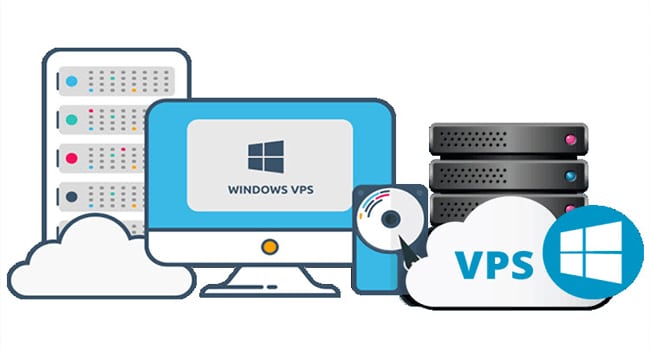Virtual Private Server (VPS) hosting is a powerful and flexible web hosting solution that bridges the gap between shared hosting and dedicated servers. It provides users with dedicated resources and greater control over their server environment, making it an ideal choice for businesses, developers, and individuals who need more power and customization options. This article explores what VPS hosting is, its benefits, features, how it works, use cases, and how to choose the right VPS hosting provider.

What is VPS Hosting?
VPS hosting involves a physical server that is partitioned into multiple virtual servers, each functioning independently with its own operating system, resources, and dedicated allocation of CPU, RAM, and storage. This virtualization is achieved using hypervisor software, which ensures that each VPS operates in isolation from others on the same physical machine.
Benefits of VPS Hosting
- Dedicated Resources: Unlike shared hosting, VPS hosting provides dedicated CPU, RAM, and storage resources, ensuring consistent performance.
- Scalability: Easily scale resources up or down to meet changing demands without downtime.
- Control and Customization: Full root access allows users to install custom software, configure settings, and have complete control over their server environment.
- Improved Security: Each VPS is isolated from others, reducing the risk of security breaches from neighboring accounts.
- Cost-Effective: Offers many benefits of a dedicated server at a fraction of the cost, making it a budget-friendly option for growing businesses.
Key Features of VPS Hosting
- Root Access: Full administrative control over the server, enabling custom configurations and installations.
- Guaranteed Resources: Dedicated allocation of CPU, RAM, and storage ensures stable and predictable performance.
- Custom Operating Systems: Ability to choose and install different operating systems, including various Linux distributions and Windows.
- Control Panels: User-friendly control panels like cPanel, Plesk, or proprietary interfaces simplify server management.
- Backup and Restore: Automated backups and easy restore options protect data and ensure business continuity.
- Security Features: Enhanced security measures such as firewalls, DDoS protection, and regular updates safeguard the server.
How VPS Hosting Works
VPS hosting utilizes virtualization technology to divide a physical server into multiple virtual servers. Here’s a simplified breakdown of the process:
- Hypervisor Installation: The physical server is equipped with hypervisor software (e.g., VMware, KVM, Hyper-V), which creates and manages virtual machines (VMs).
- Resource Allocation: The hypervisor allocates specific amounts of CPU, RAM, and storage to each VM, ensuring isolation and dedicated resources.
- Operating System Installation: Each VM operates independently with its own operating system, chosen and installed by the user.
- Server Management: Users can access and manage their VPS through control panels or SSH (Secure Shell) for administrative tasks.
Use Cases for VPS Hosting
- Web Hosting: Ideal for hosting websites and web applications that require more resources and customization than shared hosting can offer.
- E-commerce: Provides the performance, security, and reliability needed for online stores and payment processing.
- Development and Testing: Suitable for developers who need a controlled environment to test applications, software, and new technologies.
- Business Applications: Hosts resource-intensive business applications such as CRM (Customer Relationship Management) and ERP (Enterprise Resource Planning) systems.
- Gaming Servers: Powers multiplayer gaming servers that require high performance and low latency.
- Data Storage: Securely stores and manages data, ensuring quick access and robust backup options.
Choosing the Right VPS Hosting Provider
When selecting a VPS hosting provider, consider the following factors:
- Performance: Evaluate the hardware specifications and performance benchmarks to ensure they meet your requirements.
- Scalability: Look for providers that offer easy scalability of resources to accommodate growth.
- Uptime Guarantee: Choose providers with high uptime guarantees (99.9% or higher) to ensure reliability.
- Support: Reliable customer support is crucial for resolving issues quickly. Check for 24/7 availability and the quality of support.
- Security: Assess the security measures provided, including firewalls, DDoS protection, and backup solutions.
- Pricing: Compare pricing plans and ensure transparency in billing without hidden fees.
- Control Panels: Check if the provider offers user-friendly control panels for easy server management.
- Data Center Locations: Opt for providers with data centers close to your target audience to minimize latency.
Popular VPS Hosting Providers
a. Hostinger
- Pricing: Starts at $3.95/month
- Features: 1 vCPU, 1GB RAM, 20GB SSD storage, 1TB bandwidth
b. A2 Hosting
- Pricing: Starts at $5/month
- Features: 1 vCPU, 512MB RAM, 20GB SSD storage, 2TB bandwidth
c. Vultr
- Pricing: Starts at $2.50/month
- Features: 1 vCPU, 512MB RAM, 10GB SSD storage, 0.5TB bandwidth
d. DigitalOcean
- Pricing: Starts at $4/month
- Features: 1 vCPU, 512MB RAM, 10GB SSD storage, 0.5TB bandwidth
e. Linode
- Pricing: Starts at $5/month
- Features: 1 vCPU, 1GB RAM, 25GB SSD storage, 1TB bandwidth
f. InterServer
- Pricing: Starts at $6/month
- Features: 1 vCPU, 1GB RAM, 30GB SSD storage, 1TB bandwidth
Conclusion
VPS hosting offers a powerful, flexible, and cost-effective solution for users who need more resources and control than shared hosting can provide. With dedicated resources, enhanced security, and scalability, VPS hosting is suitable for a wide range of applications, from web hosting and e-commerce to development and business applications. By understanding the benefits, features, and key considerations, you can choose the right VPS hosting provider to meet your specific needs and ensure optimal performance and reliability.
This article provides a detailed overview of VPS hosting, highlighting its benefits, features, use cases, and considerations for choosing the right provider. By following this guide, you can make an informed decision to meet your hosting needs effectively.